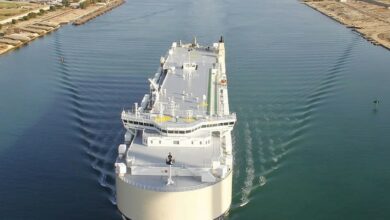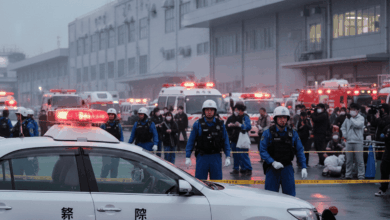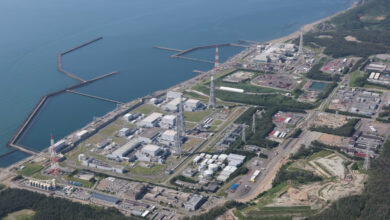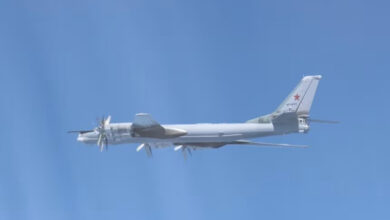
The foreign and defence ministers of Japan and Russia agreed Saturday to cooperate in fighting terrorism and piracy as the neighbours, still at odds over territorial woes, held an unprecedented security dialogue.
Japan's Foreign Minister Fumio Kishida and Defence Minister Itsunori Onodera held a so-called "2+2" meeting with Russia's Foreign Minister Sergei Lavrov and Defence Minister Sergei Shoigu at the government's guest house in Tokyo.
It was the first such diplomatic-defence talks between the two countries, which remain at odds over the sovereignty of a cluster of windswept islands to Japan's north and Russia's far east.
During the one-day meeting, the two sides agreed to carry out joint drills between Japan's Maritime Self-Defence Force and the Russian Navy designed to combat terrorists and pirates, the ministers said.
They also agreed to launch "Japan-Russia cyber-security talks" while stepping up other security and defence talks, including ministerial meetings, their joint statement said.
"We got off to a good start by turning to a new chapter of the Japanese and Russian relationship," Kishida told a joint news conference.
"Pushing for cooperation in the security sector will help enhance the entire relationship between Japan and Russia, which will have a good impact on negotiations on signing a peace treaty," he said.
Despite an important commercial relationship that is now much influenced by Japan's need to buy fossil fuels and Russia's desire to sell them, the two neighbours have failed to sign a peace treaty due to their territorial dispute.
The islands, which Japan calls the Northern Territories, but Russia administers as the Southern Kurils, were seized by Soviet troops as World War II thundered to a close.
Lavrov said Saturday's meeting also covered regional concerns, including the Korean peninsula issue, territorial disputes, drug trafficking and borderless crimes.
"We confirmed that our close cooperation in settling these issues will meet the interest of the two countries," the Russian foreign minister said.
But Kishida stressed that their bilateral dialogue did not intend to single out one particular issue or a country, adding the Japan-US security alliance is still the cornerstone of Tokyo's diplomacy.
Four separate meetings have taken place between Japanese Prime Minister Shinzo Abe and Russian President Vladimir Putin over the past six months, an unusual frequency for such high-level exchanges.
The affable tone stands in marked contrast to the the state of relations between Japan and China.
Asia's two largest economies are at diplomatic loggerheads over the sovereignty of a chain of islands in the East China Sea. Chinese President Xi Jinping and Abe have not met for a formal sit-down since either came to power.




